The Night Raid
April 1, 2015
Helen Lovatt considers Caroline Lawrence’s The Night Raid and writing about the classical world for children. Several people in my Independent Second Year Project group have decided to write for an audience of children. We have been discussing how this can make a difference to your writing in both style and content. For …
Res publica restituta?
January 16, 2015
As part of the Nottingham ‘Anniversaries through Coins’ project, Matthew Myers describes how on this day, the 16th January in 27 BC, Octavian became Augustus. Following the defeat of his former ally Marc Antony and the Egyptian queen Cleopatra at the battle of Actium in 31 BC, Octavian emerged as the victor of civil war …
Drama or History?
December 15, 2014
Victoria Moore, a part-time student on the MA in The Visual Culture of Classical Antiquity, reflects on her experience of The Coronation of Poppea by Monteverdi, performed by Opera North at the Royal Theatre, Nottingham. I have to say that I am not familiar with any of Monteverdi’s operas, so my main expectation was of …
Julian ‘the Apostate’ Comes to Power
December 11, 2014
As part of the Nottingham Anniversaries through Coins project, Robert Stone describes how on this day, 11th December, in 361, the last pagan emperor Julian II (also known as Julian the Apostate) entered Constantinople as the sole ruler of the Roman Empire. Following the death of Constantine I (337), the Empire was divided between his …
On (Not) Spoiling the Medea
November 29, 2014
Lynn Fotheringham reflects on the National Theatre’s recent production of Medea. In 2007 there was a new film-adaptation of Richard Matheson’s 1954 novel, I am Legend. Two previousversions had failed to justice to the original twist-ending, which chillingly inverts the roles of the vampires/zombies and their hunter. I knew in my heart of hearts that …
The Lex Titia…
November 26, 2014
As part of the Nottingham Anniversaries through Coins project, Mike Welbourn describes how, on this day, 26th November, in 43 BC, the lex Titia was passed at Rome. By this law a board of three men was given complete control over the Roman state. The lex Titia turned Rome into a de facto dictatorship, and …
The Power of (Moving) Pictures
November 23, 2014
Esther Eidinow reports on the first seminar of the Teaching and Learning Ancient Religion Network (TLAR), and the power of Panoply… Sonya Nevin is working magic. It’s a cold, wet evening, and 15 people, seated around a table in a room in Senate House, London (kindly sponsored by the ICS), are staring up at a …
We have two blog entries today, both from doctoral students in Classics: in the first, Peter Davies, reflects on the legacy of the poet Simonides’ words in commemorating the fallen…
November 11, 2014
After the battle of Thermopylae – immortalised by Herodotus and, in our own time, given new fame by Snyder’s epic 300 – the Lyric poet Simonides wrote an encomium for the Greek dead. In 1838 John Sterling would translate some of his words thus: Of those who at Thermopylae were slain, Glorious the doom, and …
Enjoying Receptions of Athenian Tragedy
November 2, 2014
Larissa Ransom, who is studying for an MA in Classical Literature, has recently seen Pilot Theatre’s Antigone, National Theatre Live’s Medea and Broadway Theatre Archive’s Antigone. Here she muses on how this has changed her thinking about Greek tragedy… It is commonly believed that much of a book is lost when turned into a …
Tig, You’re It
October 17, 2014
Lynn Fotheringham, Director of the Centre for Ancient Drama and its Reception (based in the Classics Dept at Nottingham University), reviews Pilot Theatre’s current production of Antigone. Pilot Theatre’s production of Sophocles’ Antigone (in a new version by Roy Williams) came to the Lakeside in the same week that we were covering screen-versions of Greek …

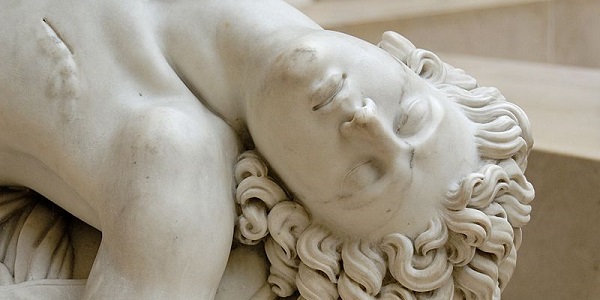
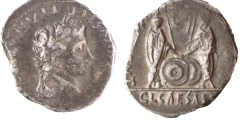
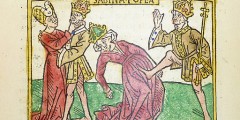
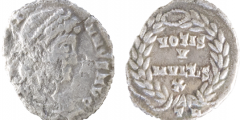
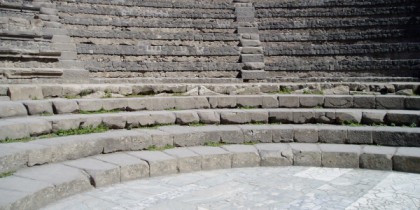

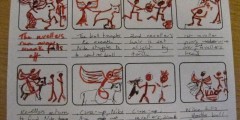

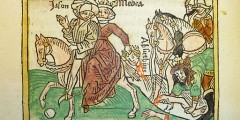
Recent Comments